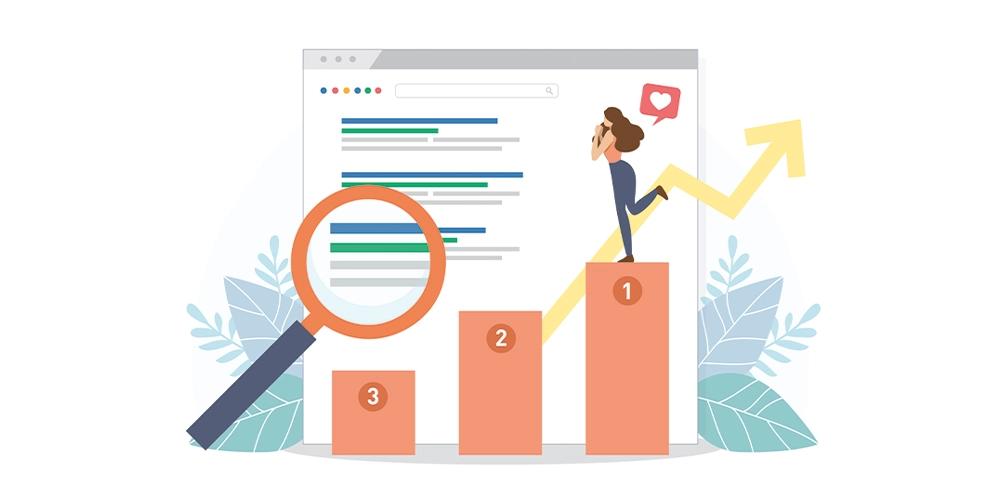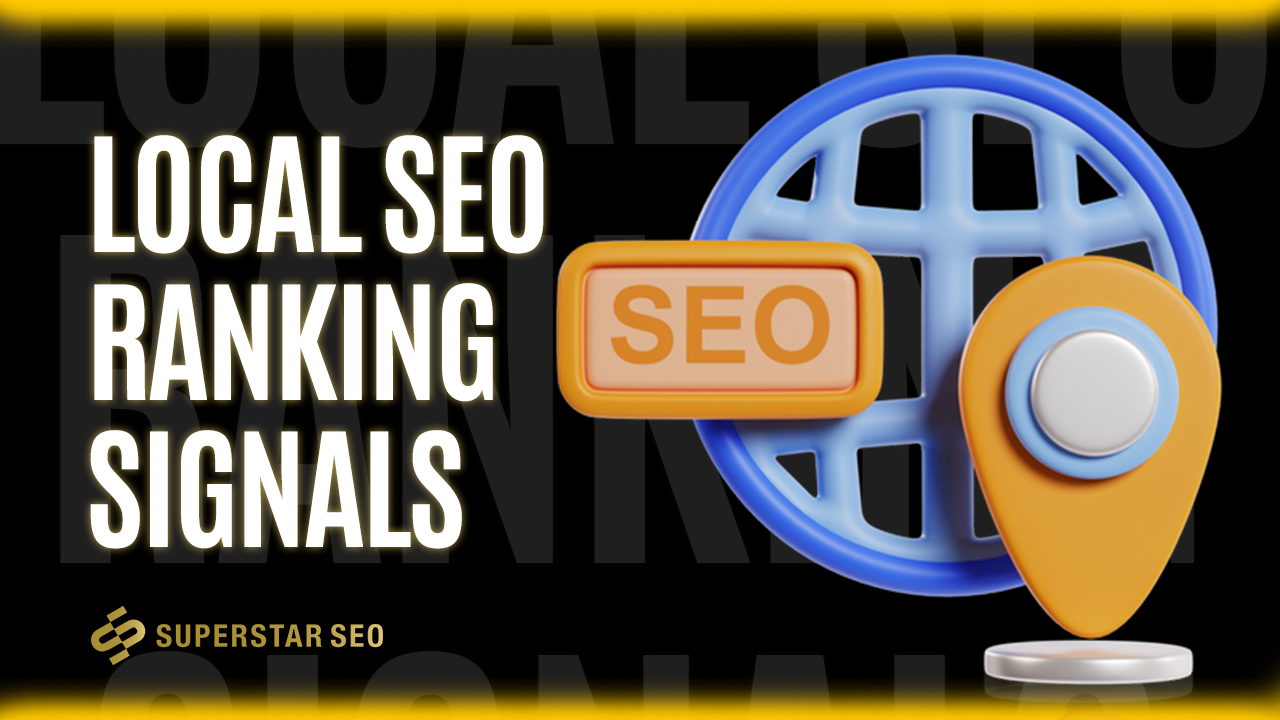Local SEO Ranking Signals
The benefits of a wholesome local SEO campaign can’t be overstated. It attracts high-quality prospects and leads right to your digital doorstep.
However, business owners in your industry are also aware of this fact. All of your competitors are trying to rank for the same search queries.
Therefore, to rank high for local searches, you need to be strategic.
In this guide, we’ll tell you all the local SEO ranking signals you should know. Optimizing your site for them will help you get sustainable local search rankings.
Let’s get started.
10 Local SEO Ranking Signals You Need to Know
Google My Business
The first thing your potential customers come across after searching for a local query is the GMB results.
Google My Business is a free tool that connects local businesses with local customers.
Having an optimized GMB profile is crucial to getting your business noticed by Google and its users.
GMB signals like your contact information, locality, categories, and other information help your local visibility.
Here’s what you’ll see for the search phrase “Dentists near New York, NY, USA”.
Notice that the first page has only three results. It’s called the Google 3-Pack.
These are the three businesses that have optimized Google Business profiles for that search query.
Here’s what you should do to optimize your GMB profile:
Claim your business with GMB
Write a detailed description
Add all important information
Get customer reviews
Respond to these reviews
Answer the questions
Add original images
You can always skip the guesswork by analyzing what the top 3 ranking profiles are doing and replicating their strategies.
On-Page Signals
Search engines look at several on-page factors before ranking a web page for a query.
The first one is the use of your target keyword in the title, headings, body, and image ALT texts.
By using your keyword in all the right places, you tell Google which queries it should rank you for.
Moreover, information like your business phone number, physical address, and email address also play their part.
Plus, the overall user experience and navigational ease matter more than ever.
You want your visitors to find the right information as soon as they land on your page.
Reviews
Online reviews are one of the first things people read about a business before making a purchasing decision.
Positive online reviews build your trust and reliability as a local business.
They not only help you convert potential buyers into repeat customers but can also help your search rankings.
Of course, the reviews need to be authentic. The number, diversity, and quality of these reviews also matter.
This means encouraging customers to leave reviews about your local business is an important part of local SEO.

Reviews with Keywords
Of course, not all reviews have the same impact on your business.
Detailed reviews with your target keywords and location in them are the most powerful.
They help Google understand your niche and location of service.
Positive reviews with the right keywords can also help your local search rankings.
Reviews with Responses
Responding to reviews is a strong signal that your profile is active and well-managed.
When you respond to all your reviews, it shows that you care about your customers.
Negative Reviews
A negative review with no response can be a disaster for your credibility and local rankings.
In fact, it’s much more important to respond to negative reviews than to positive ones.
You can handle negative reviews by politely addressing the concerns of the customer.
Some platforms where you may want your reviews to show are:
Yelp
Glassdoor
Trip Advisor
Google Maps
Backlink Profile
Your local search rankings can get a tremendous boost with high-quality backlinks.
When it comes to boosting authority, there’s nothing more powerful than relevant backlinks.
The important thing is to focus on quality rather than quantity. Implementing local link building strategies can significantly boost your website’s visibility in local search results, attracting more potential customers to your business.
Here are all the local SEO ranking factors that influence the quality of a backlink:
Authority: A domain’s authority reflects its backlink profile. You can have a good idea of a domain’s authority by looking at its DA score. A high Domain Authority usually means the domain has a high number of quality backlinks pointing to it.
Relevance: The content of the linking website should be similar to the content on yours.
Content quality: The quality of the content on the linking page matters too.
Spam score: A high spam score indicates a high number of spammy backlinks.
Dofollow to nofollow ratio: Make sure you have a good mix of dofollow and nofollow backlinks.
Anchor text: It’s the text that connects the linking site to yours. Add your target keyword and its variations to the anchor text to help search engines understand the context. Avoid overoptimizing it with your target keyword.
Ways to Build Backlinks
There are plenty of ways to build backlinks to a local website.
Most of them involve backlink outreach.
The process involves reaching out to website owners and asking for a backlink.
Guest posting is one of the most effective strategies that involve outreach.
Other link-building strategies to consider are:
Broken link-building
Claim unlinked mentions
Reclaim lost links
If you’re not sure, reverse-engineer your competitor’s link profile.
Identify their backlinks with a tool like Semrush and replicate them.
Citations
Citations are a type of backlinks that help to keep your business information consistent throughout the web.
These backlinks help search engines understand all the important information about your business.
Make sure your basic business information i.e., NAP (Name, Address, and Phone number) is consistent across all the business directories.

Behavioral Signals
Google tries its best to present the best possible local search results to its users.
How your visitors interact with your local business website is one of the most underestimated local SEO ranking signals.
These behavioral signals include:
Click to Call: When someone clicks on a button and calls your business.
Click-through rate: The percentage of people clicking on your web page after seeing it on search engines.
Brand searches: The total number of brand searches.
Search engines look at several behavioral signals to determine which business should rank for a keyword.
By tracking these signals, you can make the necessary changes and optimize your site for better local visibility.
Landing Pages
Marketers usually design landing pages for one specific action.
In terms of local SEO, you optimize landing pages for one location.
A local landing page targets potential customers in one particular area.
For instance, if you’re targeting the whole US, you can create one landing page for each state.
It’s an effective way to reach different localities other than your physical location.
Content Marketing
The goal of Google and other search engines is to provide users with as much value as possible.
By writing helpful blog posts around in-demand informational topics, you can help Google achieve that.
Since you’re helping the users, these blog posts can be your ticket to top local search engine rankings as well.
Don’t just write blog posts, but also incorporate the following types of content to boost your credibility:
News pieces
Graphics
Guest posts
Location Proximity
One fairly obvious local SEO ranking signal is the proximity of the searcher.
For instance, let’s say someone in New York is searching for “Roofers near me”.
Based on the exact location of the searcher, Google will show the list of roofers.
A roofing service that’s 5 KM away will show before the one that’s 10 KM away.
Webmasters need to optimize their content and business information to appear in front of the right people.
This includes adding your business physical location and complete address to your Google Business profile.
Mobile Friendliness
Mobile phones account for most local searches.
You want your website to appear in its best shape on mobiles.
Otherwise, most of your target audience won’t get a good enough experience.
There are two versions of your site: Mobile and desktop.
Importantly, Google gives more importance to the mobile version of your site.
So, if your site isn’t mobile-friendly, you may be leaving a lot of local leads on the table.
Local SEO Ranking Signals: FAQs
What is Local SEO?
Local SEO is a bunch of workflows that make sure your local business ranks for relevant search queries. It involves GMB optimization, local citations, and local content marketing.
How Does Google Determine Local Ranking?
Google determines local rankings by matching the relevance of your business with the searched query. The physical distance of your business and its prominence also play their parts.
What are Local Search Ranking Factors?
Local Search ranking factors are factors that determine the position of your business on search engine results pages. Improving your local SEO rankings can significantly boost your visibility and attract more potential customers to your business within your geographical area. For instance, Google looks at your GMB profile to decide if it should rank on one of the top 3 spots, also known as the three local pack.
Conclusion
Effective local SEO is the best way to get high-quality local leads to virtually any business.
However, knowing about all the local SEO ranking signals is one thing. Implementing them in your routine SEO workflows is another.
As you can see, getting a top Google search spot and retaining it long-term is easier said than done.
You need a comprehensive approach that incorporates all the ranking signals without fail.
Want to know how you can dominate Google’s local search with effective local SEO? Discover the secrets of effective local SEO strategies with the Local SEO Course by IMG Courses and take your business to new heights online.





